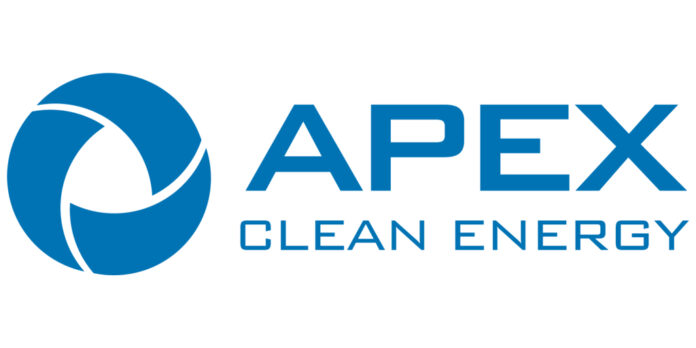BOSTON– In a first-of-its-kind renewable energy aggregation, higher education institutions, healthcare systems, and a group of public and nonprofit organizations in Greater Boston and the North Shore are adding two new large-scale renewable energy projects to regional power grids by establishing the Consortium for Climate Solutions (Consortium) to address the carbon-free objectives of its members.
Through two virtual power purchase agreements (VPPAs), the Consortium’s procurement is spurring the development of 408 MW of new renewable energy, which will be constructed, owned, and operated by Apex Clean Energy. The 200 MW Big Elm Solar project in Bell County, Texas, came online in 2024, and the 208 MW Bowman Wind project in Bowman County, North Dakota, is expected to come online in 2026. These projects will provide new sources of clean electricity to reduce reliance on fossil fuels and support a more resilient and diverse electricity grid, and collectively will generate clean power equal to the electricity use of 130,000 U.S. homes for each year of the 15-year duration of the contracts. Beyond generating tangible environmental benefits, the two projects will create approximately $64 million in tax revenue for their communities, 750 jobs during construction, and a new and long-term source of income for local farmers and landowners, totaling $100 million.
The Consortium is anchored by Harvard University, Mass General Brigham (MGB), and Massachusetts Institute of Technology (MIT), which collectively procured the largest volume of energy through the aggregation. A fourth collaborator, PowerOptions, a 500-member energy group of nonprofits and public entities, made it possible for others to join in with access to the same negotiated rates and competitive terms as the anchor participants. Those members include the City of Cambridge, Beth Israel Lahey Health, Boston Children’s Hospital, Dana-Farber Cancer Institute, Tufts University, the Massachusetts Convention Center Authority, GBH, and the Museum of Fine Arts, Boston. 3Degrees, a leading global climate solutions provider, facilitated the aggregation on behalf of the Consortium. One of the Consortium’s unique attributes is the collaboration among its diverse range of participants, creating a pioneering public/private/governmental collaboration. Those taking part in the Consortium hope this can serve as a scalable model for other organizations looking for ways to address the need for immediate climate action.
Consortium members developed an innovative approach that reduces barriers for nonprofits and offers broader access to large-scale renewable energy solutions. The Consortium’s purchasing power is enabling new utility-size projects to be developed to help address the urgent need to accelerate the shift to clean energy. At this scale, measurable impacts on electrical grid decarbonization can be realized sooner. Working together, the Consortium members are accelerating progress toward their individual decarbonization goals while simultaneously reducing carbon emissions at a national scale.
“MIT has mobilized on multiple fronts to expedite solutions to climate change,” said MIT Executive Vice President and Treasurer Glen Shor. “Catalyzing these large-scale renewable projects is an important part of our comprehensive efforts to reduce carbon emissions from generating energy. We are pleased to work in partnership with other local enterprises and organizations to amplify the impact we could achieve individually.”
“Investing in new large-scale renewables marks a significant step forward for Harvard in its commitment to a clean energy future,” said Meredith Weenick, Executive Vice President, Harvard University. “By founding the Consortium with MIT, MGB, and PowerOptions members, we are not only catalyzing the transition to a cleaner grid, but also demonstrating a collaboration model that will enable a variety of nonprofit organizations and municipalities to work together to address the urgent challenges of climate change.”
Through these VPPA contracts, the Consortium members, all of which are in Massachusetts, will expedite development of new renewable energy projects in targeted regions across the country to advance large-scale clean energy development. VPPAs enable investments in long-term renewable energy solutions in geographic areas outside the buyer’s region to promote cleaner power grids, providing health benefits from reduced air pollution and new sources of economic development. Moreover, the Consortium serves as an example of collaboration in pursuit of the common good—a healthier planet and more equitable energy options.
“Just as access to food and housing is essential to our health, so are climate resiliency and environmental sustainability. As a leader in healthcare, we know how the effects of climate change impact the health of our patients, particularly people of color and those living in underserved communities. This consortium represents an important step forward in lessening our own impact and improving the health of our community members long before they seek care at our hospitals and clinics,” said Niyum Gandhi, Chief Financial Officer and Chairman of Climate and Sustainability Leadership Council, Mass General Brigham.
“We were thrilled when anchor participants approached us to unleash the buying power of a larger aggregation and nonprofit community through PowerOptions’ members, boosting utility-scale renewable energy on the grid,” added PowerOptions President and CEO Heather Takle. “Through this Consortium, our members were able to take advantage of this innovative carbon reduction pathway that would not have been possible on their own. It was a brand-new concept and enormous decision for our members, who trusted us to advise them through the process and can now look forward to reaping the benefits.”
The Consortium for Climate Solutions fosters collaboration among its institutions as they work together to meet local climate goals in both Boston and Cambridge. This pioneering initiative sets a new standard for environmental stewardship and serves as a model for other organizations to develop similar agreements.
“This Consortium highlights the power of collaboration to drive the energy transition and expand the accessibility of renewable power to organizations of all sizes,” said Ken Young, CEO of Apex Clean Energy. “In this sense, Big Elm Solar and Bowman Wind represent a major milestone in procurement, setting a new standard for bold climate action from governments and institutions.”


